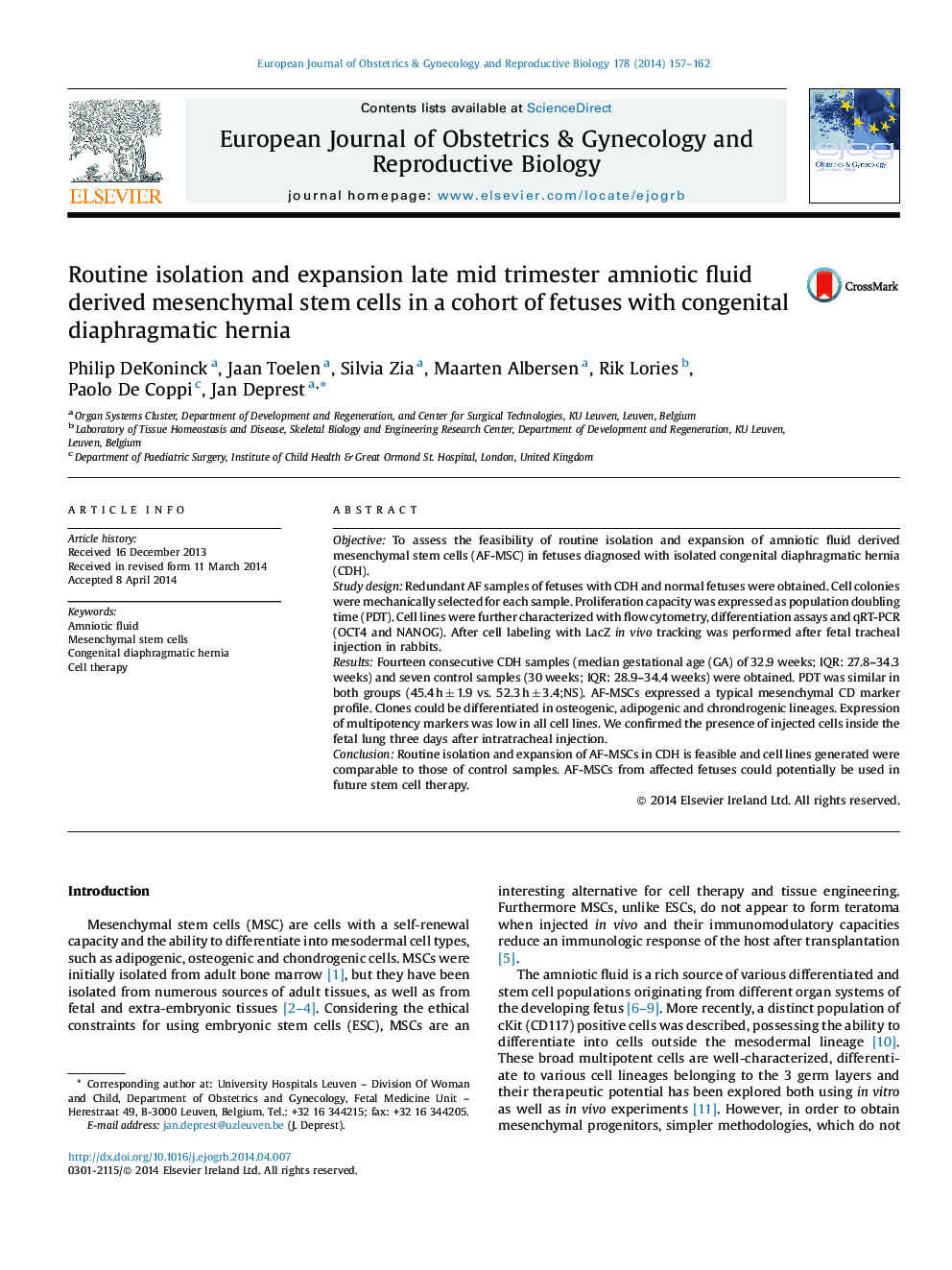| Article ID | Journal | Published Year | Pages | File Type |
|---|---|---|---|---|
| 6173718 | European Journal of Obstetrics & Gynecology and Reproductive Biology | 2014 | 6 Pages |
ObjectiveTo assess the feasibility of routine isolation and expansion of amniotic fluid derived mesenchymal stem cells (AF-MSC) in fetuses diagnosed with isolated congenital diaphragmatic hernia (CDH).Study designRedundant AF samples of fetuses with CDH and normal fetuses were obtained. Cell colonies were mechanically selected for each sample. Proliferation capacity was expressed as population doubling time (PDT). Cell lines were further characterized with flow cytometry, differentiation assays and qRT-PCR (OCT4 and NANOG). After cell labeling with LacZ in vivo tracking was performed after fetal tracheal injection in rabbits.ResultsFourteen consecutive CDH samples (median gestational age (GA) of 32.9 weeks; IQR: 27.8-34.3 weeks) and seven control samples (30 weeks; IQR: 28.9-34.4 weeks) were obtained. PDT was similar in both groups (45.4 h ± 1.9 vs. 52.3 h ± 3.4;NS). AF-MSCs expressed a typical mesenchymal CD marker profile. Clones could be differentiated in osteogenic, adipogenic and chrondrogenic lineages. Expression of multipotency markers was low in all cell lines. We confirmed the presence of injected cells inside the fetal lung three days after intratracheal injection.ConclusionRoutine isolation and expansion of AF-MSCs in CDH is feasible and cell lines generated were comparable to those of control samples. AF-MSCs from affected fetuses could potentially be used in future stem cell therapy.
